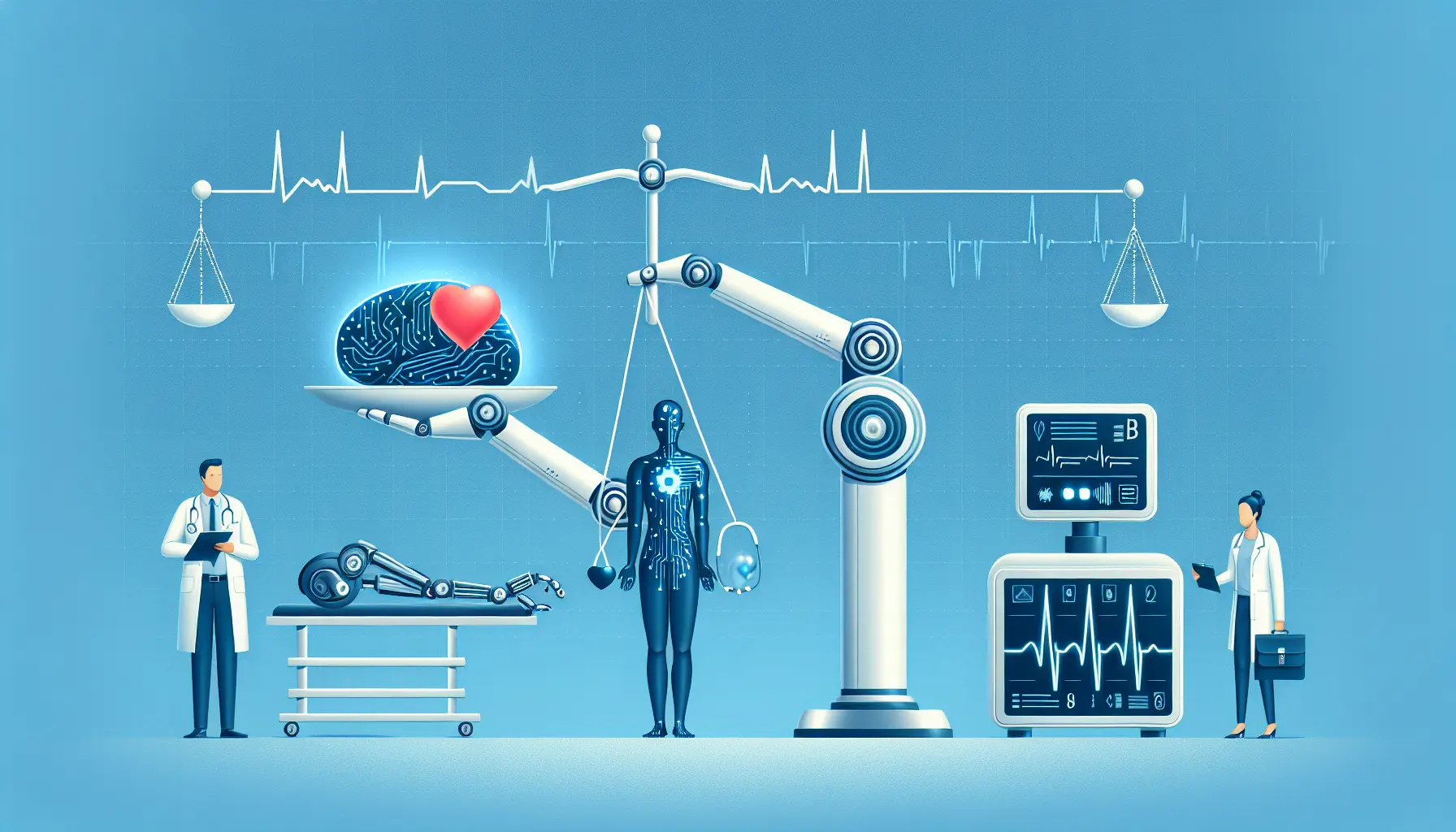The healthcare industry is undergoing a significant transformation, thanks to the rapid advancements in technology. One such game-changer is artificial intelligence (AI) in healthcare. In this guide, we will explore how AI is revolutionizing wellness and reshaping the future of healthcare.
What You’ll Need
Understanding the role of AI in healthcare does not require a technical background. However, you will need:
- An open mind to grasp the potential of AI
- Basic knowledge of healthcare operations
- Familiarity with AI concepts
Step-by-Step Instructions
Step 1: Understanding the Impact of AI in Healthcare
Artificial intelligence is not just a sci-fi concept anymore; it’s a reality that’s making a significant impact in numerous sectors, including healthcare. AI in healthcare is being leveraged to predict diseases, personalize treatment,”and streamline patient care. By analyzing vast amounts of data, AI can identify patterns and trends that humans might miss, leading to earlier diagnosis and treatment.
Step 2: Exploring the Applications of AI in Healthcare
Artificial intelligence (AI) in healthcare is revolutionizing various aspects of patient care and administrative processes. Some key areas include:
- Predictive Analytics: AI algorithms can analyze patient data to predict health risks and suggest preventive measures.
- Personalized Medicine: AI can help in tailoring treatments based on a patient’s genetic makeup, lifestyle, and other factors.
- Automated Administrative Tasks: AI can automate routine tasks like scheduling appointments, freeing up time for healthcare professionals to focus on patient care.
Tips and Tricks
While exploring the impact and applications of AI in healthcare, keep in mind:
- Stay Updated: The field of AI in healthcare is evolving rapidly.
Step 3: Understanding the Challenges and Ethical Considerations
While AI has immense potential, it also brings about certain challenges and ethical considerations in healthcare. For instance:
- Data Privacy: AI systems require access to vast amounts of personal health data, which raises concerns about data privacy and security.
- Bias in AI: If the data used to train AI systems is biased, it can lead to unfair health outcomes.
- Reliability and Accountability: As AI systems become more autonomous, determining accountability in case of errors or malfunctions becomes complex.
The ethical implications of AI in healthcare are a crucial area to understand and navigate. There’s a growing need for regulation and guidelines to ensure the responsible use of AI in healthcare.
Step 4: Implementing AI in Healthcare
The implementation of artificial intelligence (AI) in healthcare involves careful planning and an understanding of the unique needs of the healthcare sector. Here are some steps to consider:
- Identify Needs and Goals: Understand what problems AI can solve in your specific healthcare context. Do you want to improve patient outcomes, reduce administrative workload, or improve disease prediction?
- Select the Right Tools: Depending on your needs, you may need to choose between different AI technologies. For instance, machine learning algorithms can be used for predictive analytics, while natural language processing can be used for automating administrative tasks.
- Ensure Data Privacy and Security: Implement stringent data protection measures to ensure patient information is not compromised.
Tips and Tricks
In addition to the steps mentioned above, it’s crucial to keep these points## Tips and Tricks
In addition to the steps mentioned above, it’s crucial to keep these points in mind when implementing artificial intelligence (AI) in healthcare:
- Collaborate: Work closely with healthcare professionals, data scientists, and AI experts to ensure a smooth AI integration process.
- Training: Make sure that all staff members are adequately trained to use AI tools and understand their benefits and limitations.
- Continuous Evaluation: Regularly monitor and evaluate the performance of AI systems to ensure they are meeting the set objectives and improving patient care.
Conclusion
The role of artificial intelligence (AI) in healthcare is undeniably transformative, promising a future where patient care is personalized, predictive, and precise. However, as we embrace this technology, we must also address the ethical and practical challenges it presents. By staying informed and adopting a strategic approach, we can harness the power of AI to revolutionize wellness and reshape the future of healthcare.
Looking ahead, the role of artificial intelligence (AI) in healthcare is expected to become even more crucial. As healthcare systems continue to gather and analyze more data, the potential applications of AI will only grow.
Image Source

Leave a Reply